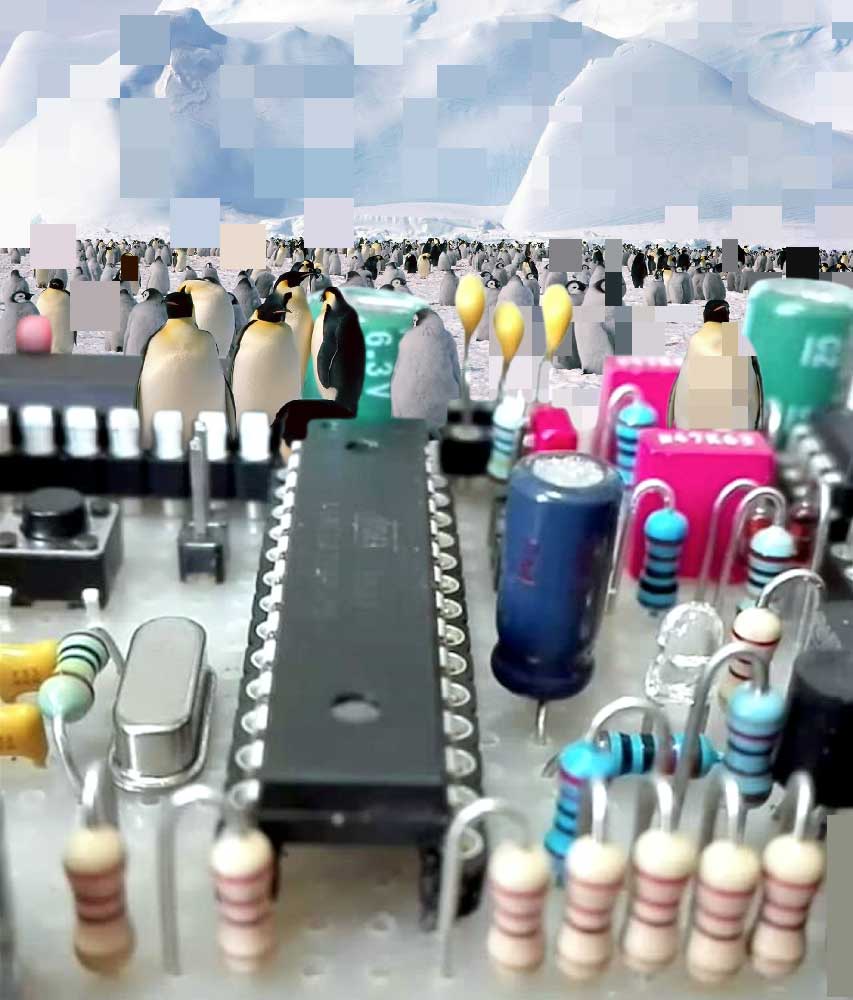Kelly Heaton, "Climate Change (Penguins)," 2017. Digital photocollage comprised of an electronic circuit, a photo of Emperor Penguins in Antarctica, and pixel manipulation
Emperor penguins may disappear by the end of this century
By Lakshmi SupriyaJul. 7, 2017 , 10:30 AM
Emperor penguins are known for braving the harsh Antarctic winters, but they might not be able to brave the harsh realities of climate change. That’s the finding of a new study, which suggests that by the end of this century, the world’s largest penguins may be no more. Previous research suggested that rapidly warming air and sea temperatures—which melt sea ice—might cause their numbers to plummet by as much as 19% by 2100. But a new model looks at other factors, including how individual penguins deal with climate change by migrating to places with optimal sea ice coverage. In their model of potential penguin migrations, researchers looked at how far penguins typically go and what factors figure in their decisions. They used data previously collected from Pointe Géologie in Antarctica along with satellite images of penguin colonies that revealed information about their traveling and foraging behavior. The model projects that for the next 2 decades, populations will remain stable, and may even increase slightly as the penguins move to locations that are more habitable. After 2050, it all goes downhill. Although the rate of population decline may vary, by the year 2100 almost all emperor penguins may be gone, the researchers write in an upcoming issue of Biological Conservation. That’s because climate change will have rendered all their habitats inhospitable by then. Gaining endangered status under the U.S. Endangered Species Act, the scientists say, may be one way of arresting what might otherwise be their final march.
Posted in:
DOI: 10.1126/science.aan7070
http://www.sciencemag.org/news/2017/07/emperor-penguins-may-disappear-end-century

